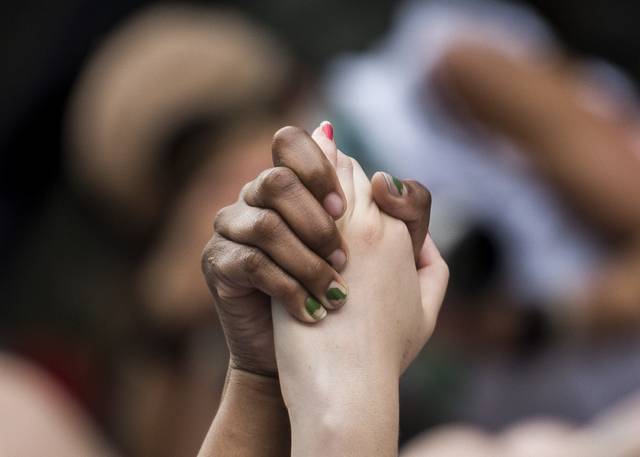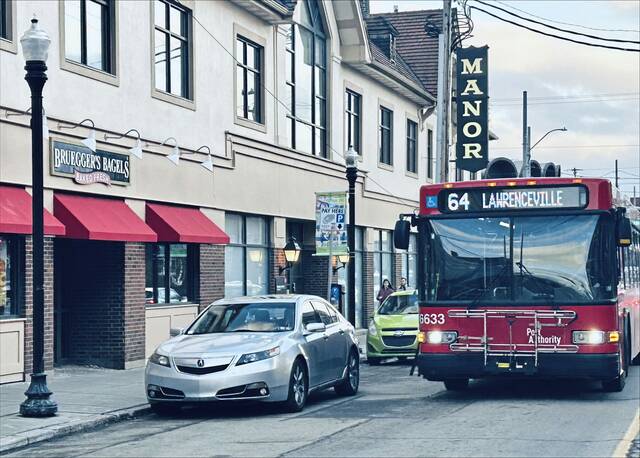Dear Potential White Ally,
It’s me, your black friend/neighbor/co-worker/family member/acquaintance/person in the world.
2020 has been a lot to handle — an election year, a pandemic, economic depression, and now this. Brutal civilian and police killings of black Americans have punctuated the first half of this year. In Georgia, three men have been charged with killing Ahmaud Arbery, who was out jogging. In Louisville, Ky., police shot and killed Breonna Taylor in her apartment while executing a search warrant. In Minneapolis, a police officer has been charged with second-degree murder in the choking death of George Floyd, who was out shopping.
In all 50 states and around the world, protests against white supremacy occur daily. The hard truth: we lose black Americans ever year, and have for centuries. These protests are in response to that build-up of violent history.
A lot of what you’ve seen in the news is disturbing, and it should be. You may be thinking to yourself, “How can this be allowed in my country?” This might be a new question for you, or maybe you ask it with renewed vigor. I know this question viscerally; I’ve asked it all my life. You may feel overwhelmed, lost, frozen. I get that — imagine how black people must feel every day, and every time this happens.
Know this: You are not helpless. This isn’t a pat on the back, it’s cold water to your face. As a white person, there are many things you can and should be doing to support black people and to engage fellow white people in actively opposing racism.
So here are a few concrete and empathetic actions you should take right away.
• First, check in on black people with whom you already have a relationship. Text, call, email, whatever. It’s a small gesture that can really help. Do not expect an immediate response. Or any response. Don’t ask, “How are you doing?” or “What do you think about all of this?” Consider just saying, “I’m thinking about you.” That’s what black folks need to hear most.
Asking us to explain ourselves forces us to quickly sort complicated emotions, calculate a response based on what we think you want to hear, or lie. Please don’t put us in that position — just let us know you’re there for us. We’ll talk to you if and when we’re ready.
• Second, talk with the other white people in your life. This is important for a simple, unfortunate truth: In 2020, many white people are still steadfast in their lack of understanding about race and won’t hear out a black person empathetically, but they might listen to you. To be an ally, you must step into this space and challenge racist ideas wherever and whenever you encounter them.
This will be difficult and uncomfortable, and I don’t encourage engaging with people who may be dangerous. But what’s more difficult and uncomfortable is black Americans being killed regularly for just living their lives. As a white ally, you can be a bridge. It shouldn’t be this way, but then again, none of it should be this way.
• Third, I want to talk about social media. Remember all the little black boxes in your timelines from last week? The idea started in the music industry as a way for businesses to amplify black voices by being silent themselves. In true internet fashion, it spiraled out of control to the detriment of black organizers and activists. Vital hashtags became clogged with little black squares in well-intentioned yet unhelpful posts.
Instead of sharing information or awareness, many white allies further centered themselves in the conversation. This is the case with most social media gestures, like changing a profile picture; attention is drawn to the profile overlay, not to the issue of anti-black violence. Little to no lasting change is enacted from overnight internet trends.
As unhelpful as this was, far worse was the rapid spread on social media of the video of George Floyd’s murder. The uneasy balance here is this: It’s important for news outlets to share information on these stories and the videos are evidence. On the other hand, the videos are traumatizing, and being unable to check social media as a black person without seeing our death on loop preserves a cycle of pain.
Break this cycle and don’t share those videos. Be purposeful in what you post. Sure, it’s easy and convenient to send or share a post and feel as though you are doing work. But justice is not easy or convenient; it’s more than a hashtag. It requires a meaningful and long-term investment of self.
• This leads me to my fourth point: rely on yourself and do independent research. Look up videos and literature on anti-racism. Read the books and the articles. Do not ask a black person to explain racism to you — see my first point on avoiding asking how we’re doing. These requests are laborious. Even a little fluency in terminology, history, theory, policy, etc. goes a long way.
Here’s a freebie to start: The documentary “13th” on Netflix, directed by Ava DuVernay. Whether you’re new to allyship or not, this film will give you a good grounding in the inequities baked into our society. But far more important than where you start in your journey is that you don’t stop once you begin.
• And this is point five: Once you have begun to educate yourself, follow through. Apply this work to your life. In fact, if you don’t do this, the rest isn’t effective. “You cannot claim to value something if you don’t do it,” is a phrase I’ve said to myself over and over through my adult life, and it matters here too. This will be uncomfortable work, like talking to your friends and family, but all of it should be uncomfortable to a degree.
Remember that even small acts of anti-racism add up in large movements of justice.
• Sixth, take a break from whatever bubble you’re in and parse through what you’re thinking and learning. It doesn’t all have to be on social media. You can talk with your partner, a trusted friend, or your therapist. You can write it down or say it out loud to yourself — it doesn’t have to have an audience. It’s important to step back, process and think for yourself about how you can work on anti-racism in your own life.
• Lastly, the work of justice is never-ending, so stay tuned in for the long haul. My seventh tip is to take breaks. You don’t have to engage to the point of exhaustion — trust me, I know how difficult it is to absorb racist messages constantly. Burnout is real and the work of anti-racism is tiring and frustrating. You won’t always win. More often than not, you’ll lose. But you have to stick it out. It’s the only way we all get out. And we can only stick it out if we take care of ourselves.
Boiled down to one phrase: Black Lives Matter. This is simple, pure, and true. We’ve all wasted too much time equivocating with people over our basic humanity instead of fighting for one another. This shouldn’t be upsetting or uncomfortable, but if it is, I’ve done my job. If it isn’t, share this with someone it will upset.
We have to change minds to change hearts, and change laws to change systems. Complacency abets injustice. Let these words be both guide and gadfly to spark you to action.
Rest in peace Ahmaud Arbery, Breonna Taylor, George Floyd, and so many more.
Sincerely,
Your black friend/neighbor/co-worker/family member/acquaintance/person in the world.
Cameron Barnett is a middle school teacher in the Oakland neighborhood of Pittsburgh and an editor for Pittsburgh Poetry Journal. His poetry collection “The Drowning Boy’s Guide to Water” won the the 2017 Rising Writer Contest and was a finalist for an NAACP Image Award. In 2019 he received the Carol R. Brown Creative Achievement Award for Emerging Artist, a partnership of The Pittsburgh Foundation and The Heinz Endowments.








